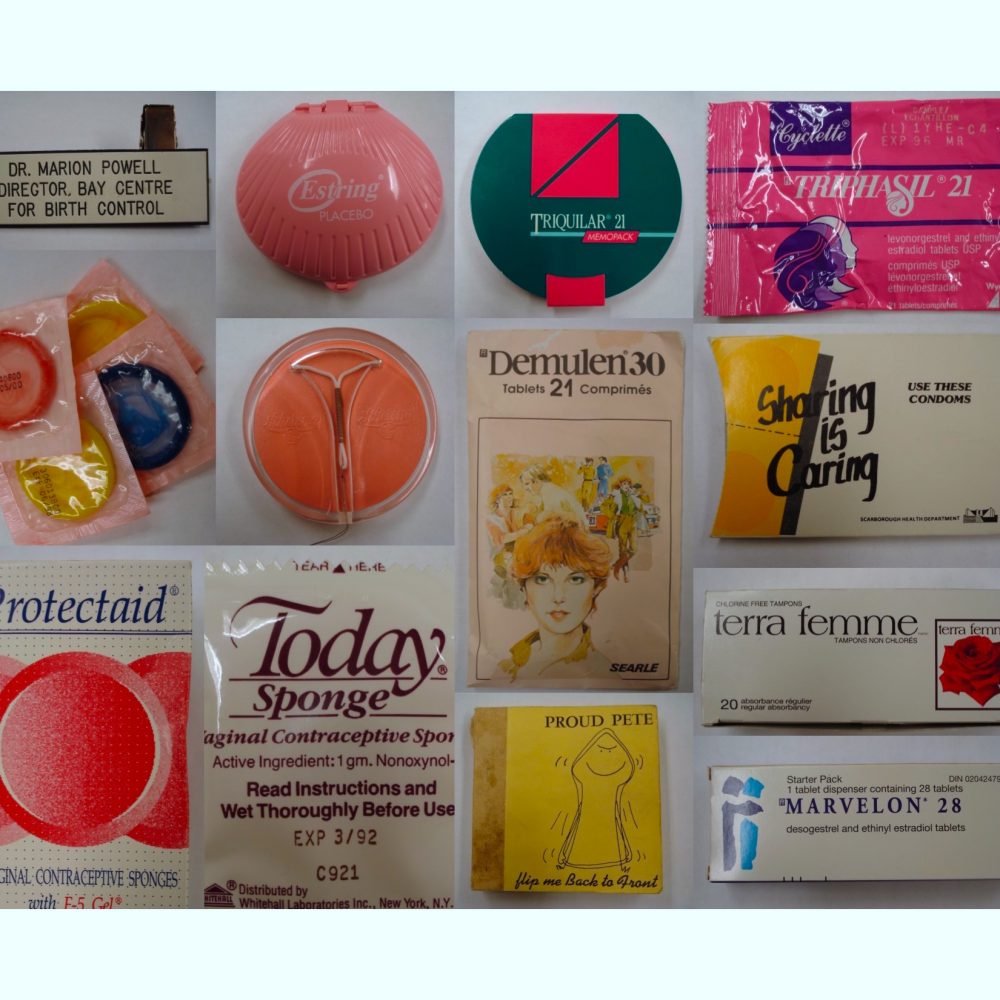Uncommon Practice: WCH and Sexual Healthcare in the 20th Century
April 26, 2019 – Ongoing
Women’s College Hospital, Sixth Floor
Lucy Beale, Emma Franco-Toner, Nicole Kolkman, and Emily Williams
On the 50th anniversary of Canada’s decriminalization of contraceptives, Uncommon Practice presents the history of Canadian sexual healthcare in the 20th century and the formative role that Dr. Powell and other WCH doctors played. The exhibition contextualizes the advancements of sexual healthcare within the larger history of women’s rights and the importance of contraception in liberating Canadian women. Dr. Powell is central to this history, and we use primary materials such as letters, interviews, and her personal library in order to allow her to ‘speak for herself’.
The audience is patients, their friends and family, hospital staff and University of Toronto students. Because the space is transitory and non-traditional, the content and presentation had to be mindful of the emotional state of the patients and their families, as well as varying levels of medical and historical knowledge.
The exhibition is located on the sixth floor of WCH in downtown Toronto (76 Grenville St). There are four exhibition areas: two floor-to-ceiling in-built glass cases, separated by a corridor, one empty and one shelved, and two standalone four-tiered cabinets. This allows for a variety of objects and didactic materials.
Uncommon Practice is sponsored by The Miss Margaret Robins Archives of WCH, in conjunction with the University of Toronto’s Faculty of Information.
Planning began in August 2018. Research was conducted from September-December 2018 and artifact selection, content creation, and design, took place from January-March 2019. Installation will take place in late April 2019. There is no pre-agreed upon de-installation date.
This exhibition incorporates several methods of interpretation, including photographs and objects, object labels (some expanded), a contextualizing timeline and video composed of archival footage of interviews with Dr. Powell. Each large display case also contains an extended informational panel. The introductory panel places the exhibition in context and lays out the connection between Dr. Powell’s career and 20th century advances in sexual healthcare and women’s liberation. The secondary panel lays out the ways in which Dr. Powell worked beyond the hospital, such as writing an advice column and designing an educational curriculum. As this exhibition is in a working environment, there will not be any programming associated with it. It will be marketed internally in the WCH newsletter and on their website, as well as via social media by the MMSt student group MUSSA.
As the exhibition is yet to open, whether or not we achieve our goals is yet to be determined. However, we aim for visitors to learn about the importance of WCH and its doctors in the history of providing sexual healthcare services to Canadian women. It is intended, using various methods of interpretation, the role of Dr. Powell and her colleagues in the provision, research and improvement of these services throughout the 20th century. On the 50th anniversary of decriminalization, we hope to establish the link between increased access to sexual health services and advancements in women’s rights.
We would like to thank Ms. Heather Gardiner, archivist at The Miss Margaret Robins Archives of WCH, for her continuous support of our project and for providing us with a space to present this exhibition. We also want to acknowledge the financial support of the University of Toronto’s Faculty of Information, and the guidance of our advisor, Professor Matthew Brower
History Exhibit
contraception, education, health, healthcare, Ontario, sexual healthcare, Toronto, women, Women’s College Hospital, women’s rights
